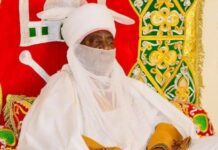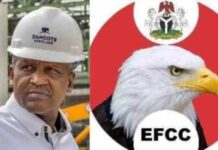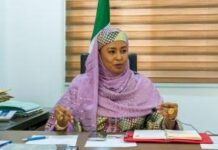Fresh facts have emerged about the role of some top Nigerian lawyers in the country’s controversial gas supply contract with Process & Industrial Development Ltd (P&ID) in 2010.
According to KAFTANPost findings, the nation’s supposed representatives may have been compromised all along in the entire judicial exercise.
In January 2017, an independent London tribunal found that Nigeria was liable for $6.6 billion in damages against P&ID after it failed to deliver on terms initially agreed.
Three years later, prompted by P&ID looking for enforcement of the ruling, a United Kingdom (U.K.) court ruled that Nigeria’s state-owned assets could be seized if the country refused to settle its bill, which had risen to $9.6 billion because of accrued interest.
Nigeria was granted the right to appeal but asked to pay $200 million in the meantime.
The judgement caused a stir, given that the sum is over 20% of both the country’s reserves and the value of its annual exports.
Amid this, the Federal Government essentially accused international parties of trying to defraud the country while the Economic and Financial Crimes Commission (EFCC) expanded its probe into the initial deal by seeking assistance from Irish and U.K. law enforcement.
More recently in March, the FG applied to US courts seeking for documents from 10 banks, which includes Citigroup Inc. and JPMorgan Chase & Co, in a bid to prove its corruption allegations.
The country, on Monday, returned to the UK court to appeal for more time to appeal the $9.6 billion arbitration award against it over the breach of the contract.
In all of these, P&ID, however, denied any wrongdoing in the whole transaction, arguing that Nigeria missed its opportunity to appeal.
But how did Nigeria find itself on the receiving end of one of the largest ever judgements against a sovereign state?
An investigation by KAFTANPost has uncovered foul play on the part of the country’s legal representatives led by Olasupo Shasore, SAN.
Before stepping aside from the Justice Reform Project on Thursday over what he described as “serious allegations made against him in a professional capacity”, the ex-Lagos State Attorney General and Commissioner for Justice was believed to have been indeed compromised, leaving the country at a fix.
According to our sources, an investigation by the EFCC found Mr Shasore guilty of receiving kickbacks to the tune of $2 million. The 56-year-old, in turn, made payments of $100,000 each to Mrs Adelore and Mr Oguine, who were senior lawyers for the Monetary Policy Committee (MPC) and the Nigeria National Petroleum Commission (NNPC) at the time.
“It has also come to light during the course of the EFCC’s investigations that: Mr Shasore was paid US$2 million for his involvement in the first and second stages of the arbitration. The average salary of a government lawyer in Nigeria is just US$5,000. Mr Shasore concealed his involvement in the case from his own firm, Ajumogobia & Okeke. He conducted the proceedings covertly through a separate firm, Twenty Marina, which had no background in litigation and was used to provide secretarial services,” our source said.
“Mr Shasore made payments of US$100,000 each to Mrs Adelore and Mr Oguine, who were senior lawyers for the MPR and the NNPC at the time. The most likely explanation is that these payments were intended to purchase the silence of Mrs Adelore and Mr Oguine in relation to Mr Shasore’s conduct of the arbitration. Based on these payments, Mr Shasore was clearly dishonest and corruptible (and, as set out above, P&ID had a track record of corruption). Following the election of President Buhari into office, and the transfer of the conduct of the arbitration to the MoJ for the liability phase, Mr Shasore refused to meet with the Attorney General and complained that it was ‘unacceptable and unconscionable to liaise with [the AG’s] office on the matter as he had always liaised with the MPR since the commencement of the proceedings’.
“Mr Shasore’s conduct of the first two stages of the arbitration was truly egregious. He chose not to seek any disclosure, to accept all material aspects of Mr Quinn’s witness evidence and did not seek to cross-examine anyone at P&ID on the key issue in the case: whether P&ID could and would have performed the GSPA. In light of the indicators of fraud listed above, the most likely explanation for this is that Mr Shasore had entered into a dishonest arrangement with P&ID not to challenge its evidence or seek any disclosure, with the inevitable result that FRN lost the case. Mr Shasore’s failure to challenge Mr Quinn’s evidence.
“A chronology of Mr Shasore’s egregious conduct in the arbitration, which the Court is invited to read in full, is appended as Schedule 2 to this skeleton argument. On 6 May 2015, the Tribunal ordered by consent that FRN within two days, by 8 May 2015.”











